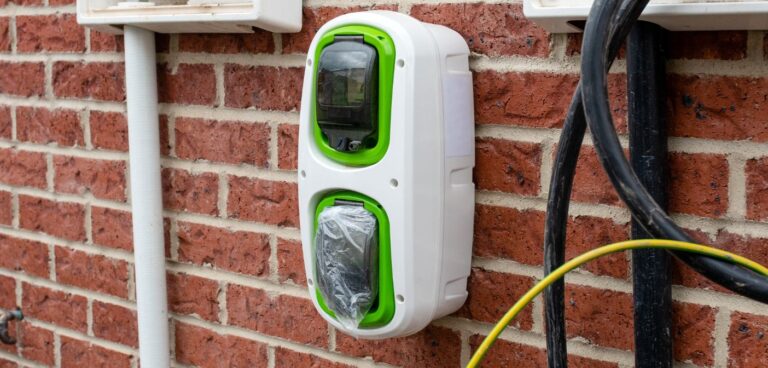New homes and buildings such as supermarkets and workplaces, as well as those undergoing major renovation, will be required to install EV chargepoints from next year, under new legislation announced today [22 November] by Prime Minister Boris Johnson.
Up to 145,000 extra chargepoints will be installed across England each year following these new regulations, in the run up to 2030 when the sale of new petrol and diesel cars will end in the UK. This builds on the over 250,000 home and workplace chargepoints the government has said its supported to date.
According to the government, the majority of charging happens at home and it aims to ensure that new properties are ready for an EV future, while ensuring chargepoints are readily available at new shops and workplaces across the UK. The regulations aim to make it as easy to charge an EV as it is to refuel a petrol or diesel car currently.
As well as new homes and non-residential buildings, those undergoing largescale renovations which leaves them with over 10 parking spaces will be required to install EV chargepoints.
After consulting with industry, the government will also introduce simpler ways to pay for EV charging whilst travelling, such as contactless payments at all new fast and rapid chargepoints.
This comes as the Prime Minister addressed the CBI annual conference, Boris Johnson, said: “This is a pivotal moment – we cannot go on as we are. We have to adapt our economy to the green industrial revolution.
“We have to use our massive investment in science and technology and we have to raise our productivity and then we have to get out your way.
“We must regulate less or better and take advantage of new freedoms.”
The government has also announced, that following a successful pilot with businesses, Innovate UK will deliver a new three-year programme of £150m in new flexible and affordable innovation loans to help British SMEs commercialise their latest R&D innovations.
Whilst this is open to a variety of sectors, green businesses will be able to apply from early next year, many of whom have already been benefiting during the pilot. This includes Northern Ireland based Catagen Ltd, it has developed a catalytic converter designed to help vehicle manufacturers to reduce emissions.
Additionally, NanoSUN Ltd – a company based in Lancaster –that develops and manufactures hydrogen refuelling products for customers in the oil and gas and transport sectors has received an innovation loan, which has enabled it to triple the number of high-skilled engineers employed, as well as prototyping and demonstrating its products.





